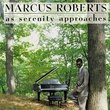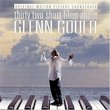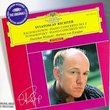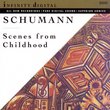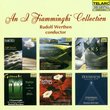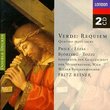| All Artists: Bela Bartok, György Sándor Title: Bartok: Complete Solo Piano Music Members Wishing: 1 Total Copies: 0 Label: Vox (Classical) Release Date: 5/27/2003 Genres: Dance & Electronic, Special Interest, Classical Styles: Holiday & Wedding, Ballets & Dances, Dances, Forms & Genres, Improvisation, Requiems, Elegies & Tombeau, Sonatas, Suites, Historical Periods, Modern, 20th, & 21st Century, Instruments, Keyboard, Symphonies Number of Discs: 5 SwapaCD Credits: 5 UPC: 047163361029 |
Search - Bela Bartok, György Sándor :: Bartok: Complete Solo Piano Music
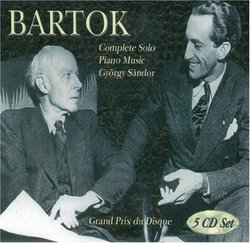 | Bela Bartok, György Sándor Bartok: Complete Solo Piano Music Genres: Dance & Electronic, Special Interest, Classical Sàndor, still active at 90 as this reissue appears, was a student of Bartók and a preferred interpreter of his music. Since this set appeared on nine LPs in the early 1960s, it has been the standard for Bartó... more » |
Larger Image |
CD DetailsSynopsis
Amazon.com Sàndor, still active at 90 as this reissue appears, was a student of Bartók and a preferred interpreter of his music. Since this set appeared on nine LPs in the early 1960s, it has been the standard for Bartók's piano music; in this fine-sounding reissue, it still is. Sàndor can hit hard enough for such virtuoso pieces as the Piano Sonata and "Out of Doors," but he also retains the romantic element heard in the composer's own playing which tempers the harsher qualities of the music. While this collection isn't quite as complete as advertised (some early, insignificant piano music by Bartók is omitted), it includes all of Bartók's significant piano music, including such relatively obscure gems as the Bagatelles, eight Improvisations, and many delectable folk arrangements which will appeal even to listeners who think Bartók is too challenging for them. Vox's recorded sound, superbly remastered, resists obsolescence as effectively as Sàndor's performances. Even with the inclusion of the early books of "Mikrokosmos," which will appeal mostly to piano students, this set is worth several times the asking price. --Leslie Gerber Similar CDsSimilarly Requested CDs
|
CD ReviewsAn essential set for Bartók lovers and pianophiles J Einhorn | Washington DC | 06/20/2003 (5 out of 5 stars) "Once again, the underrated Vox Classics outclasses the Big Five with another superb and almost obscenely inexpensive box set -- this one bringing together their landmark survey of Béla Bartók's complete solo piano music by Bartók's most well known protégé György Sándor, recorded in 1963 and released as a series of multi-LP sets in the mid-1960s.For some reason, the solo piano music of Bartók has been overshadowed by a clutch of indisputable masterpieces (including but not limited to Concerto for Orchestra, Music for Strings, Percussion and Celesta, Piano Concerto No. 2, Violin Concerto No. 2, Quartets Nos. 2 and 5, the Solo Violin Sonata and Bluebeard's Castle). Perhaps it's because so much of the Bartók's solo piano music is still regarded as "pedagogic" -- as in the case of the Mikrokosmos and For Children cycles. Perhaps it is because so many of the works consist of many short movements -- and in this respect Bartók can to an extent be compared with Edvard Grieg, whose masterly short piano works get the short shrift. If you are predisposed to dismiss this repertoire based on those prejudices, allow social critic and comedian Bill Maher to speak for me: "Get over yourself!" Make no mistake: this set is filled with so much delightful music that if you have a serious interest in Bartók, or in great piano music, or are a student or teacher of the piano, you are doing yourself a major disservice by not clicking that "add to my shopping cart" button. And keep this in mind: you'd pay about the same amount for a front-line single disc of Bartók's major solo works containing the most well known works (In the Woods, Allegro Barbaro, the Sonata and the Suite) -- but you'd miss out on some genuine delights.Transfers are generally excellent, and the booklet includes an informative 11-page essay on the music by Harry Halbreich." Best classical value out there Jeffrey Jones | Northern California, USA | 10/05/2005 (5 out of 5 stars) "To put this set in perspective, for months I would go to my local Tower Records fishing for worthwhile classical CDs at least once a week. One of the discs that sat in the bins the longest was a single CD of Bartok piano music, played by Zoltan Kocsis. It was Volume 7 of a complete series. This CD listed for $17.99, and as long as I went to that Tower Records, it did not budge an inch, nor was its price amended. Now, Kocsis is one of the greatest pianists alive, and if anyone is worthy of commanding a premium, it is him. And to be fair, that CD is going to be re-released on October 11 as part of a Collector's Edition - eight CDs, $63.97 MSRP. But it's already going up against this little gem, which contains five CDs with all of the truly great solo-piano works by an internationally recognized Bartok specialist for $21 - not much more than the cost of one CD from the other set. This kind of value is not to be taken lightly. I came to this set with my impression of Sandor informed by his complete Prokofiev - ultra-hard, sometimes rhythmically slack, always melodically lacking in some way or another. But he held a very special feeling for Bartok, and saved his best playing for the great Hungarian. In passages like the first of the Three Csik Dances, the opening of the Improvisations Op. 20, or in the Ten Easy Pieces, there is a simplicity, charm and wistful homesickness that is quite touching. In pieces like the Out of Doors suite, the Sonata, or the Burlesques, there is a vicious, impulsive energy, a wicked sense of humor and an overabundance of overtones. It is never mindless, inappropriate or even overly harsh - it's just very, very loud. In this set I like best the endless landscape of the Sonatina, the unusual colors and fragrances in the Etudes, the brilliantly conceived Bear Dance (the last of the Ten Easy Pieces), and the multifaceted, complex, gorgeous Improvisations. Any fan of Bartok should hear these." Great value with a few flaws Joshua Bryant | Gibsonville, NC USA | 07/28/2006 (4 out of 5 stars) "I am not a Bartok expert by any scale, but I do like the way these pieces, without exception, are played. There are, however, a couple of other problems.
As mentioned by an earlier reviewer, very few of the works are split into tracks - Mikrokosmos is divided into 7 for each of its six volumes, and to accomodate for a full CD. In these seven tracks there are 121 songs. I would have much preferred if the songs had been split into tracks. Almost the entire CD set is this way - Fifteen Hungarian Songs is one track, Fourteen Bagatelles, etc. It is very annoying when one wants to hear a particular song in those tracks and not the others. Another detriment to the collection is the recording quality. It is decent most of the time, but in loud sections the piano buzzes. One might be able to ignore it, but I think that it detracts from the passion of the forte quite a bit. Overall, for $18 it is pretty decent, but if you are like me and like to keep your music library neatly organized (and aren't extremely cheap), I would not recommend this set." |



